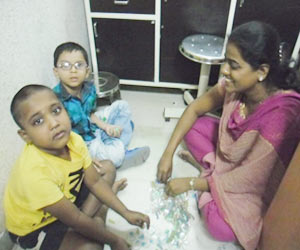A study shows that mothers who have the habit of using mobile phones while eating with their young children are less likely to have verbal, nonverbal and encouraging interactions with them.

Researchers from Boston University School of Medicine (BUSM) found mothers with the most mobile device use had significantly fewer verbal interactions with their children than mothers who had no or negligible use while eating. Maternal use of mobile devices was associated with 20 percent fewer verbal and 39 percent fewer nonverbal interactions. Mothers with the greatest mobile device use made significantly fewer encouragements toward their children. During presentation of unfamiliar foods, which is usually stressful for young children, mothers with mobile device use showed 26 percent fewer verbal interactions and 48 percent fewer nonverbal interactions, suggesting that these moms may have been less "available" to help their child through this novel experience.
According to the researchers, nonverbal interactions are a primary mode through which emotional content is communicated between parents and children, so its frequent displacement could represent a significant decrease in emotional connection. "We theorize that mobile device use was associated with a decreased number of maternal verbal and nonverbal interactions through decreased awareness of the child's social cues while the mother's gaze and/or attention was directed at a device," explained corresponding author Jenny Radesky, MD, clinical instructor in Developmental-Behavioral Pediatrics at BUSM and a former fellow in pediatrics at Boston Medical Center.
Because secure parent-child relationships are one of the strongest buffers against psychosocial stress, the researchers believe guidance is needed for how caregivers can use the rapidly evolving technologies in their homes in the healthiest ways possible. "As mobile device ownership and use becomes nearly universal, these results may have important implications regarding how parents balance attention between devices and interactions with their children during daily life and during meals in particular, which are an important protective routine in pediatric health," she added.
Source-Eurekalert











